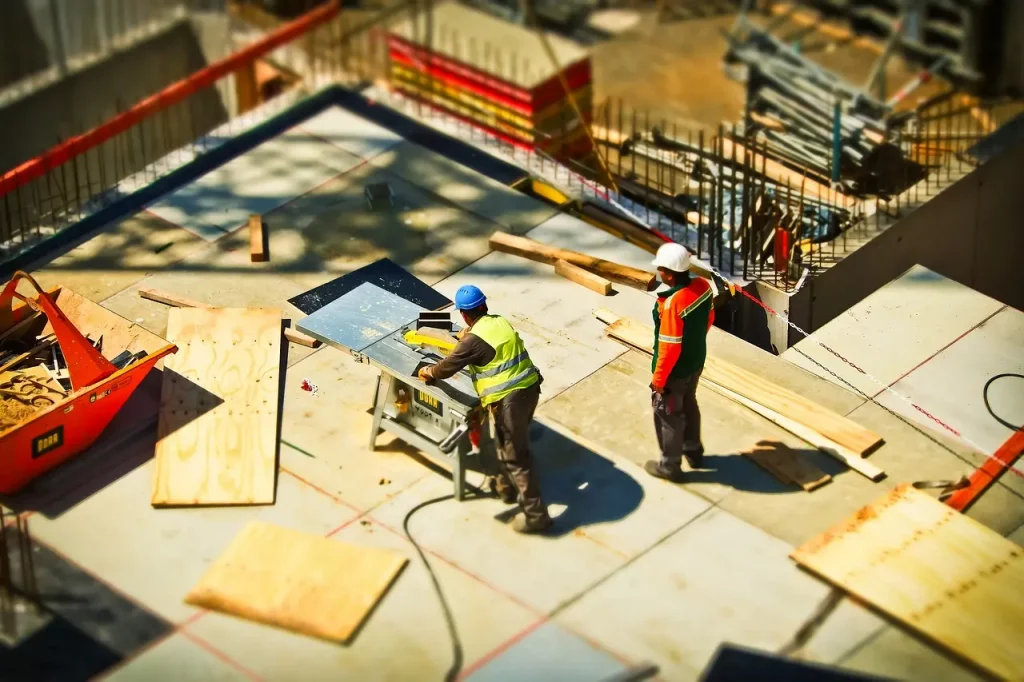Starting your own construction business can be a very rewarding experience, but it can also be challenging if you don’t do your homework first.
In this blog post, we will provide you with some useful tips to help get your new business off the ground.
We will discuss topics such as financing and funding your business, researching your local market, and writing a business plan.
We will also provide you with information on registering your business and obtaining the necessary licenses and permits.
Finally, we will talk about insurance requirements for construction businesses.
By the time you finish reading this blog post, you should have a good understanding of what it takes to start a successful construction business.
Financing Your Business
If you’re thinking about starting a construction business, the first thing you need to do is figure out how you’re going to finance it.
Are you going to use personal savings?
Apply for a bank loan? Seek out, investors?
Once you have a plan for finance to support construction projects, you can be on your way to starting your business.
You can start to look into the costs of starting up and running a construction business.
These costs can vary depending on the size and scope of your business, but they typically include things like equipment, supplies, insurance, and licenses and permits.
One of the most common ways to finance a small business is through a small business loan.
There are many different types of loans available, and the best one for your business will depend on factors like your credit score, the amount of money you need, and how you plan to use the funds.
Another option for financing your construction business is through grants. Grants are typically offered by the government or private organizations, and they are designed to help businesses start or expand their operations.
There are a number of different grants available, so be sure to do your research to see if you qualify for any of them.
Do Your Market Research
Before you start spending money on your new business, it’s a good idea to do some research and see what the competition looks like in your area.
What are other construction businesses charging for their services? What kind of marketing strategies are they using?
By doing your homework up front, you can avoid pricing yourself out of the market and develop a marketing strategy that will help you stand out from the competition.
Have A Business Plan
A business plan is an essential tool for any new construction business. It will help you track your progress and ensure that you are on track to meet your goals.
A well-written business plan should include information about your target market, your competitive analysis, your marketing strategy, and your financial projections.
If you’re not sure where to start, there are plenty of resources available online and in libraries to help you write a business plan.
Register Your Company
Once you have your business plan complete, the next step is to register your business with the state.
This process can vary depending on where you live, but in most cases, you will need to file articles of incorporation or a fictitious name registration.
You will also need to obtain a business license and any other permits or licenses that may be required in your state.
Be sure to research what is needed in your area, as the requirements can vary greatly.
Applying for a license is a process that can take some time. Make sure you allow yourself enough time to get all of the required documentation in order before applying.

Get Good Insurance Coverage
Another important step in starting your construction business is obtaining the proper insurance coverage.
This is essential because it protects you and your employees from potential liability in the event of an accident or injury on the job.
Workers’ compensation insurance is typically required in most states, and you may also need general liability insurance.
This is important because it protects you from being sued if someone is injured on your property or if you damage someone else’s property.
You can get this coverage through a business insurance policy or as a separate policy.
You can check with your state’s department of insurance to find out what specific coverage requirements apply to your business.
A step in starting your construction business is getting bonded.
This type of insurance protects your customers from any losses that might occur as a result of your work, and it also shows them that you are a reputable and reliable contractor.
Additionally, make sure that you’ll also invest in safety equipment to ensure that both workers and pedestrians are safe as possible. Equipment such as helmets, goggles, earmuffs, anti gawk screens, and road signs should always be present at each construction site. Doing so will also decrease the number of accidents.
You can usually get bonded through your insurance company or through a surety company.
Have a Good Marketing Strategy
In order to be successful, it’s important to have a good marketing strategy in place.
This means that you need to know who your target market is and what kind of messaging will resonate with them.
You also need to come up with a plan for how you’re going to reach your target market.
Grow Your Business Slowly
Another important tip for starting a small construction business is to grow your company slowly.
It can be tempting to take on every job that comes your way, but if you’re not yet ready to handle a large workload, it’s better to start off with smaller jobs and work your way up.
This will help you build a good reputation and avoid getting in over your head.
Of course, you’ll also need to make sure that you’re marketing your business effectively so that you can attract new clients.
You can do this by creating a website and social media accounts, and by making sure that your company’s name is listed in online directories.
You can also distribute construction flyers and business cards in your local community.
Don’t Go in Alone
One tip for starting a small construction business is to not go in alone.
It’s always helpful to have someone you can turn to for advice and support, whether it’s another contractor or an industry association.
There are also many online resources available that can help you get started, such as this guide from the Small Business Administration.
If you’re thinking of starting a small construction business, these tips should give you a good foundation on which to build.
Of course, there’s a lot more to running a successful business than what we’ve covered here, but this should give you a good start.
With careful planning and execution, your construction business can be off to a great start!








